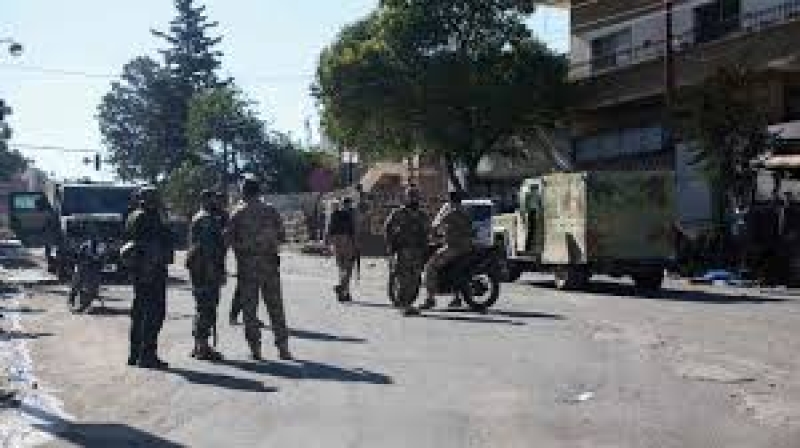- India Sees 9% Drop in Foreign Tourists as Bangladesh Visits Plunge |
- Dhaka Urges Restraint in Pakistan-Afghan War |
- Guterres Urges Action on Safe Migration Pact |
- OpenAI Raises $110B in Amazon-Led Funding |
- Puppet show enchants Children as Boi Mela comes alive on day 2 |
Israel Warns of Escalation as Syria Ceasefire Collapses

Fighting has reignited in the southern Syrian city of Sweida following the collapse of a fragile ceasefire between Syrian government forces and Druze militias, prompting a stark warning from Israel that it may escalate its military intervention to protect the Druze minority.
Syria’s Defense Ministry accused armed factions in the Druze-majority region of violating the truce, prompting government troops to resume operations. Officials said efforts are focused on targeting "terrorist elements" while minimizing civilian casualties and enabling the return of displaced residents.
The renewed clashes come amid lingering instability following the December overthrow of longtime President Bashar Assad by Islamist factions, effectively ending Syria’s nearly 14-year civil war. The new Sunni-led government has struggled to gain the trust of minority communities, particularly after a deadly wave of sectarian violence in March that killed hundreds of Alawite civilians—Assad’s sect—in fighting with loyalist militias.
Sweida, long seen as relatively stable during the conflict, has become a new flashpoint. A cycle of tit-for-tat kidnappings and revenge attacks between Sunni Bedouin tribes and Druze factions has escalated, with government forces caught in the middle. Activists and local sources allege abuses by state security forces, including summary executions, looting, and the destruction of civilian homes.
Although official casualty figures have not been updated since Monday’s death toll of 30, the Syrian Observatory for Human Rights reports over 250 people killed since fighting resumed—including women, children, and more than 130 government soldiers. At least 21 deaths were reportedly the result of summary executions.
Israel, citing a responsibility to defend the Druze, has already carried out a series of airstrikes on Syrian government convoys in recent days. Defense Minister Yoav Gallant warned Wednesday that Israeli forces would “intensify operations” if Syrian regime troops do not withdraw from Druze areas near the border. Prime Minister Benjamin Netanyahu echoed the message Tuesday, saying Israel is determined to keep its border region demilitarized and ensure the safety of Druze civilians.
The Druze—an esoteric religious sect that emerged from Islam’s Ismaili branch in the 10th century—number around one million globally, with large communities in Syria, Lebanon, and Israel. In Israel, where the Druze are an integrated minority and serve in the military, solidarity with their Syrian counterparts runs deep. In Syria, however, the Druze are divided—some support engagement with the new leadership, while others demand autonomy and protection.
Since Assad’s fall, Israel has adopted a firm stance against Syria’s new rulers, seeking to prevent Islamist militants from gaining ground near its borders. Israeli forces have taken control of parts of the U.N.-monitored buffer zone in southern Syria and have stepped up airstrikes on targets across the country.
As Sweida teeters on the brink of full-scale conflict, regional tensions are mounting, raising fears that the Syrian crisis could once again spiral into a broader war—this time with direct Israeli involvement.

